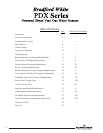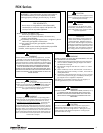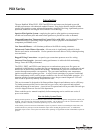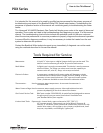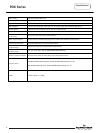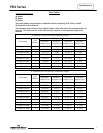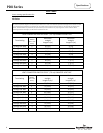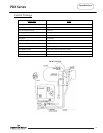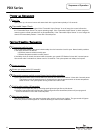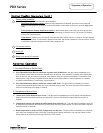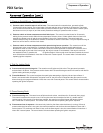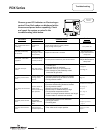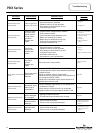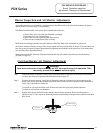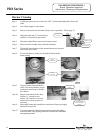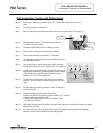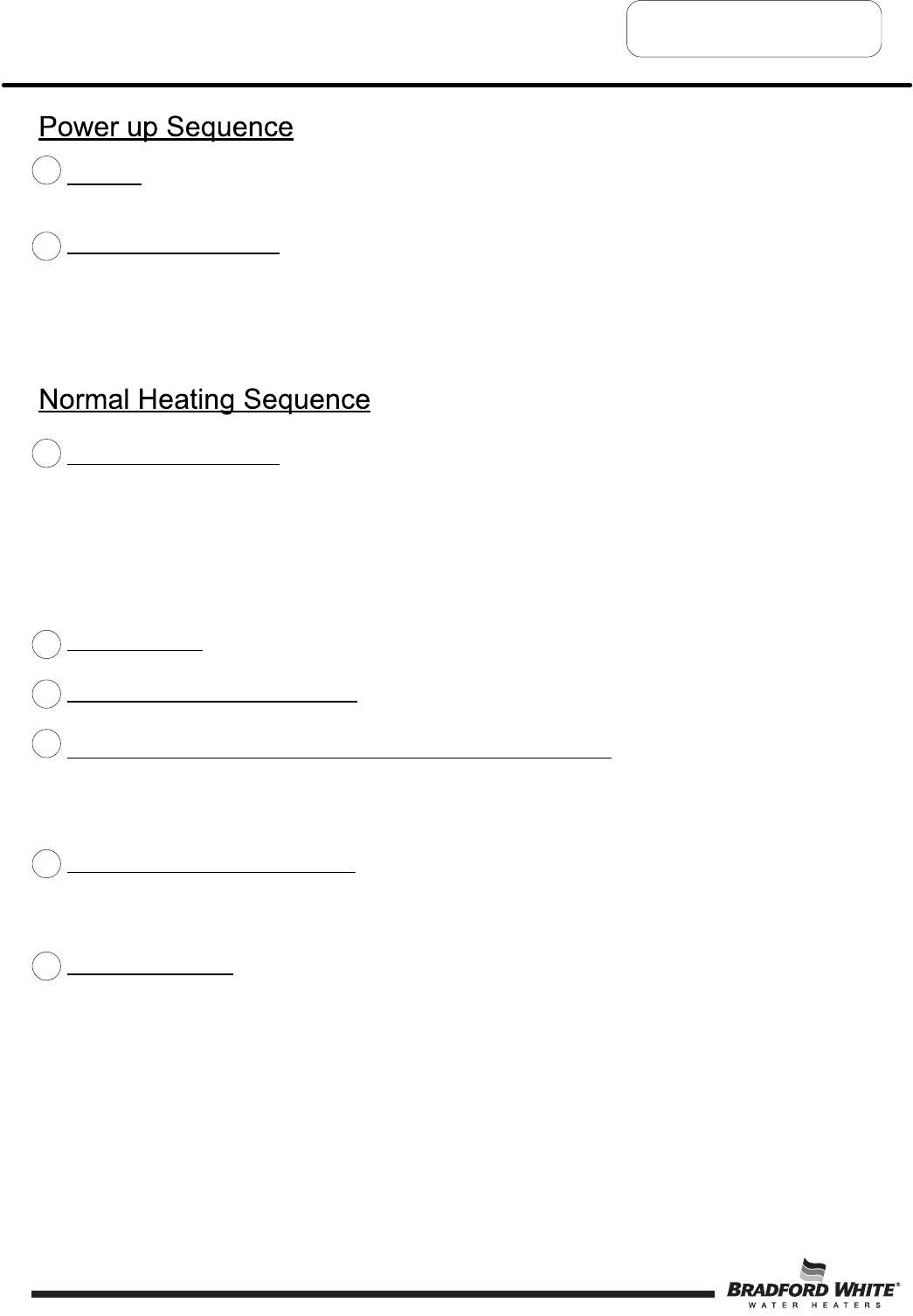
Sequence of Operation
Thermostat calls for heat.
Prior to energizing blower, gas control checks safety circuit to insure the circuit is open. Normal switch positions
in the safety circuit are as follows:
a) Exhaust pressure switch normally open.
b) Blower temperature switch normally closed.
If the safety circuit is closed, the control waits 4 seconds, gas control LED flashes 2 times with 3 second pause.
Gas control waits 2 minutes then, blower runs for 30 seconds. This cycle repeats until safety circuit opens.
1
Start Up.
Upon power up, the control runs a safe-start check with a typical start-up delay of 1-5 seconds.
2
Flammable Vapor Check.
To assure no outputs are energized if the “Flammable Vapor Sensor” is out of range, the control will test the
the “Flammable Vapor Sensor” for proper operating range. If the “Flammable Vapor Sensor” is within range the
control resumes normal operation with no perceptible delay. If the “Flammable Vapor Sensor” is out of range, the
control LED immediately flashes 7 times with 3 second pause.
1
2
Blower energizes.
3
Differential pressure switch proves blower/vent system operation.
a) If the pressure switch does not close within 30 seconds, the control LED Flashes 3 times with 3 second pause.
The blower runs for 30 seconds every 2 minutes trying to get the pressure switch or blower temperature
switch to close. This cycle repeats as long as there is a call for heat.
4
Blower pre-purge period (15 seconds)
5
Trial for pilot ignition (90 seconds).
a) The gas control lights the pilot by activating spark igniter and gas flow to pilot burner.
b) If flame is not sensed within 90 seconds, igniter and gas flow are deactivated, blower will post purge and
control LED flashes 6 times with 3 second pause.
6
Main burner Ignition
After pilot flame is sensed, gas control activates main valve for main burner ignition. The gas control will ignore
flame and pressure switch signals for 3 seconds allowing for main burner to stabilize.
Page 10
PDX Series
10



